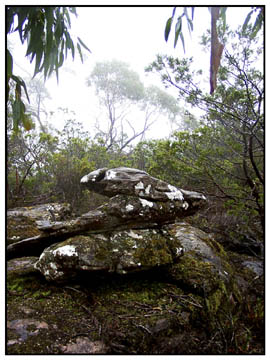When I first started actually tasting what wine was in my glass - you know, the 5 S's: see, swirl, sniff, savor, swallow - I had a really hard time discerning when a wine offered minerality and when it just had nice acidity. To my beginner palate, the mouthwatering juices in my mouth were one in the same with a wine with a little 'bite', if you will. I found I struggled with this concept when tasting white wines more often than reds. Many whites offer crisp, citrusy flavors. I associated this crispness with minerality. But when I really got the hang of tasting - whites and reds alike - I was able to disassociate the two, or detect each of these components separately, should they be evident in the wine.
Let's start with acidity. If you smell a wine and your mouth waters, you are detecting acidity in the wine. If you take a sip and detect a bit of a tingling sensation on your tongue and/or the inside of your cheeks start to water, you're also in the money. Acidity heightens the flavor of foods, or makes the wine more "food-friendly" (and also helps it age). This is a great thing, so long as the wine offers complementary amounts of fruit and tannin to balance the acidity present. This is also described as a wine where all the major components (acidity, fruit and tannin) are in balance. Too much acidity and you'll experience a razor blade slicing through the center of your tongue. Not my idea of a good time....
savor, swallow - I had a really hard time discerning when a wine offered minerality and when it just had nice acidity. To my beginner palate, the mouthwatering juices in my mouth were one in the same with a wine with a little 'bite', if you will. I found I struggled with this concept when tasting white wines more often than reds. Many whites offer crisp, citrusy flavors. I associated this crispness with minerality. But when I really got the hang of tasting - whites and reds alike - I was able to disassociate the two, or detect each of these components separately, should they be evident in the wine.
Let's start with acidity. If you smell a wine and your mouth waters, you are detecting acidity in the wine. If you take a sip and detect a bit of a tingling sensation on your tongue and/or the inside of your cheeks start to water, you're also in the money. Acidity heightens the flavor of foods, or makes the wine more "food-friendly" (and also helps it age). This is a great thing, so long as the wine offers complementary amounts of fruit and tannin to balance the acidity present. This is also described as a wine where all the major components (acidity, fruit and tannin) are in balance. Too much acidity and you'll experience a razor blade slicing through the center of your tongue. Not my idea of a good time....
Now on to the more challenging of the two: minerality. When I think of minerality in wine, I think of it falling into two camps. My preferred of the two is wet stones, you know, like when you are out on a hike and you can almost taste the wet rocks leading up to the waterfall. (Or if you were more adventurous as a kid, just remember actually licking the stone.) Otherwise, minerality for me is more like seltzer water where there is that extra bit of salinity lingering on the midpalate or finish. I know others who associate minerality with chalk dust that floated from the teacher's chalkboard back in grade school; in that case you'd be experiencing more of a clean, dusty, earthy kind of minerality thing going on. It's all good.
Why does minerality matter (we'll save the same conversation on acidity for another day)? It doesn't really, I suppose. It's essentially just another term to pick apart all the fun things that could be going on in your glass with any given pour. To me it's one particular wine term that comes up more often in the summer months, when you're sitting on your porch drinking some truly fabulous whites, like those from the Loire Valley in France (think Sancerre (Sauvignon Blanc), for example).
What does "minerality", one of the wine world's most elusive flavor concepts, mean to you?
